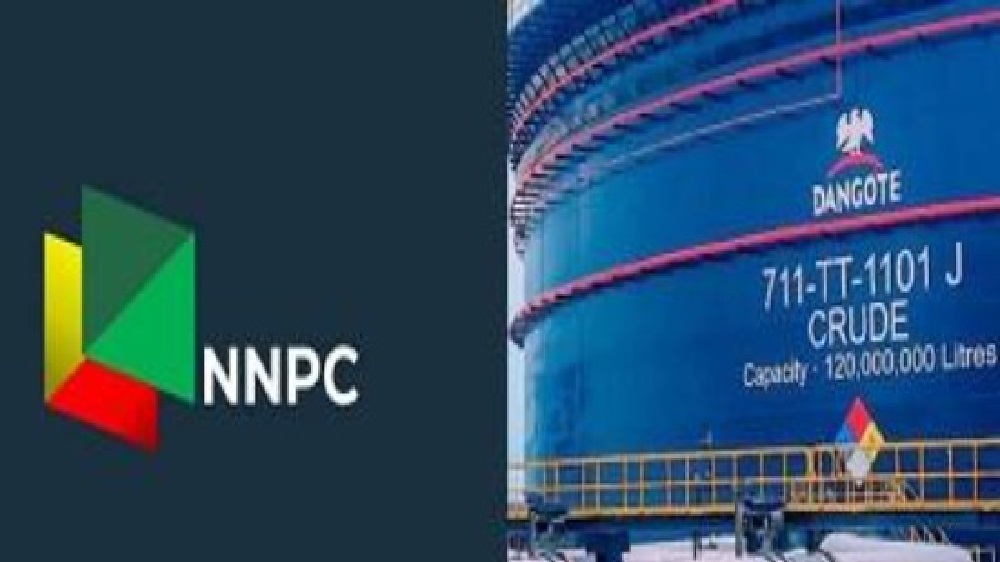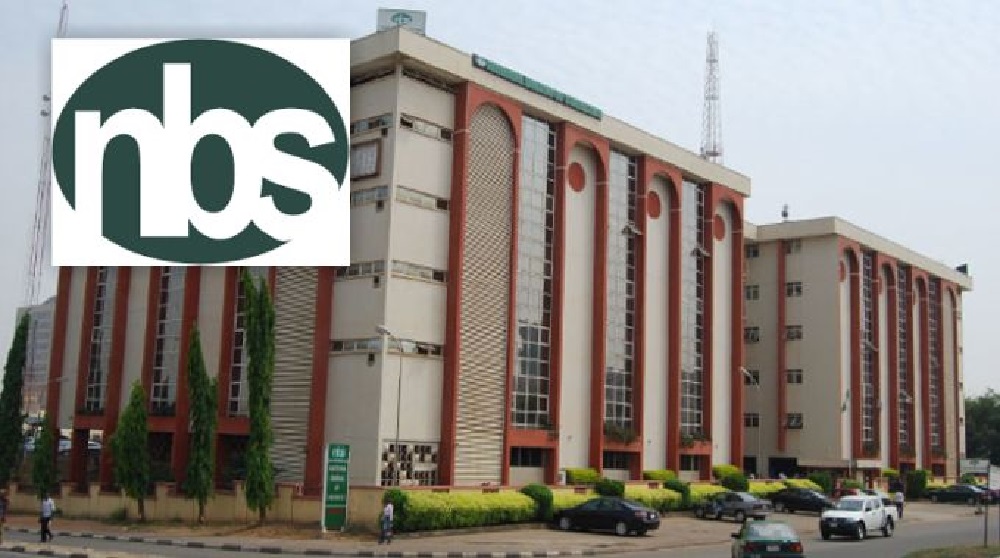Economy
SEE Black Market Dollar To Naira Exchange Rate Today 6 May 2024

Black market dollar to naira exchange rate today 6 May 2024 can be accessed below.
The official naira black market exchange rate in Nigeria today including the Black Market rates, Bureau De Change (BDC), and CBN rates. Please note that the exchange rate is subject to hourly fluctuations influenced by the supply and demand of dollars in the market. As of now, you can purchase 1 dollar at a certain rate now, however, it’s important to keep in mind that the rate can shift (either upwards or downwards) within hours.
What is the dollar to naira exchange rate today?
The local currency (abokiFx) opened at ₦1,435.00 per $1 at the parallel market otherwise known as the black market, today, Monday, 6 May 2024, in Lagos Nigeria, after it closed at ₦1,410.00 per $1 on Sunday, 5 May 2024.
Dollar to Naira (USD to NGN) Black Market Exchange Rate Today
Buying Rate ₦1,420
Selling Rate ₦1,435
How does the black market dollar-to-naira exchange rate compare to the official rate?
The official exchange rate of the US dollar to the Nigerian naira, as of today, 6 May 2024, is ₦ 1,383 per US dollar.
Date Currency Buying(NGN) Central(NGN) Selling(NGN)
5/3/2024 US DOLLAR 1382.065 1382.565 1383.065
5/3/2024 POUNDS STERLING 1734.3534 1734.9808 1735.6083
5/3/2024 EURO 1488.0694 1488.6077 1489.1461
5/3/2024 SWISS FRANC 1525.9633 1526.5154 1527.0675
5/3/2024 YEN 9.055 9.0583 9.0616
5/3/2024 CFA 2.1486 2.1586 2.1686
5/3/2024 WAUA 1751.4566 1752.0903 1752.7239
5/3/2024 RIYAL 368.4819 368.6152 368.7485
5/3/2024 DANISH KRONA 199.4552 199.5274 199.5995
5/3/2024 SDR 1821.6999 1822.3589 1823.018
This is the rate that the CBN uses for its transactions and interventions in the foreign exchange market. The official rate is also the basis for the exchange rates of other foreign currencies, such as the euro, the pound sterling, and the Chinese yuan.
The difference between the black market rate and the official rate is called the parallel market premium. The parallel market premium indicates the degree of divergence between the official and unofficial markets, and reflects the level of confidence in the naira and the CBN’s policies.
Factors Influencing Foreign Exchange Rates
Here are some of the causes of the dwindling dollar-to-naira exchange rate.
Inflation Rates: It is well known that inflation directly impacts black market exchange rates. If the Nigerian economy can be stabilized and inflation is controlled, the naira will benefit; however, if the naira continues to fall, it may indicate that food and other necessities are becoming more expensive daily.
Interest Rates: Another tool to keep an eye on is interest rates. If the interest rate at which banks lend money rises, it would harm the economy, causing it to contract and, as a result, the value of the naira to fall.
Government Debt: National debt can impact investor confidence and, as a result, the influx of funds into the economy. If inflows are high, the naira exchange rate will rise in favour of the naira.
Speculators: Speculators frequently impact the naira-to-dollar exchange rate. They stockpile money in anticipation of a gain, causing the naira to plummet even lower.
Conditions of Trade: Favorable trade terms will increase the value of the naira to the dollar, although Nigeria is currently experiencing a trade deficit. Everything comes from China, India, and the majority of Asian countries.
Economy
Dangote Refinery, NNPCL resume fight over $1bn loan

Dangote Group, owners of Dangote Refinery, and the Nigerian National Petroleum Company Limited, NNPCL, have clashed over a $1 billion crude oil-backed loan.
Recall that barely 24 hours ago, in a statement credited to NNPCL spokesperson Olufemi Soneye, the state-owned oil firm said it secured a $1 billion loan backed by crude to support the Dangote Refinery during liquidity challenges.
However, Dangote Group spokesperson, Anthony Chijiena, has described NNPCL’s claim as ‘misinformation’.
The company clarified that the $1 billion crude backed loan is about five percent of the total investment that went into building the 650,000 barrels per day refinery.
According to him, it is inaccurate to say NNPCL facilitated $1 billion for Dangote Refinery amid liquidity challenges.
Chijiena explained that NNPCL had proposed a 20 percent stake investment valued at $2.76 billion in the Dangote Refinery, but that didn’t materialise.
He noted that NNPCL was able to invest $1 billion, which amounts to 7.24 percent equity value.
“Our decision to enter into a partnership with NNPCL was based on recognition of their strategic position in the industry as the largest offtaker of Nigerian crude and, at the time, the sole supplier of gasoline into Nigeria.
“We agreed on the sale of a 20 percent stake at a value of $2.76 billion. Of this, we agreed that they will only pay $1 billion while the balance will be recovered over a period of 5 years through deductions on crude oil that they supply to us and from dividends due to them.
“If we were struggling with liquidity challenges, we wouldn’t have given them such generous payment terms.
“As of 2021, when the agreement was signed, the refinery was at the pre-commission stage. In addition, if we were struggling with liquidity issues, this agreement would have been cash-based rather than credit-driven.
“Unfortunately, NNPCL was later unable to supply the agreed 300 thousand barrels a day of crude, given that they had committed a greater part of their crude cargoes to financiers with the expectation of higher production, which they were unable to achieve.
“We subsequently gave them a 12-month period for them to pay cash for the balance of their equity given their
inability to supply the agreed crude oil volume.
“NNPCL failed to meet this deadline, which expired on June 30th, 2024. As a result, their equity share was revised down to 7.24 percent. These events have been widely reported by both parties.
“It is, therefore, inaccurate to claim that NNPCL facilitated a $1 billion investment amid liquidity challenges.
“Like all business partners, NNPCL invested $1 billion in the refinery to acquire an ownership stake of 7.24 percent. That is beneficial to its interests,” the Dangote Group statement said.
Economy
Nigeria’s National Bureau of Statistics Website Hacked

The National Bureau of Statistics (NBS) on Wednesday announced that its official website has been hacked.
The bureau disclosed this on its X handle.
The NBS announced that it is currently working to recover the website and urged the public to disregard any messages or reports posted on the site until it is fully restored.
“This is to inform the public that the NBS Website has been hacked and we are working to recover it. Please disregard any message or report posted until the website is fully restored. Thank you,” the NBS said.
The NBS is the principal agency responsible for the collection, analysis, and dissemination of statistical data in Nigeria.
The statistics office has recently published several key reports such as the Nigerian Gross Domestic Product (GDP) Report Q3 2024, which provides an update on Nigeria’s economic growth and performance, the Nigeria Labour Force Survey (NLFS) report for Q2 2024, which offers insights into Nigeria’s labor market, including employment and unemployment rates and the Consumer Price Index November 2024, which provides the latest information on Nigeria’s inflation rate, among others.
In November, the NBS said Nigeria’s GDP grew by 3.46 per cent year-on-year in real terms in the third quarter of 2024.
The NBS said this growth rate is higher than the 2.54 per cent recorded in the third quarter of 2023 and higher than the second quarter of 2024 growth of 3.19 per cent.
On Monday, the NBS said Nigeria’s annual inflation rate rose to 34.60 per cent in November from 33.88 per cent in October.
This marks a continuation of the upward trend observed in September, when the nation recorded a reversal of a two-month decline.
Economy
UK inflation rises further ahead of Bank of England rates decision

UK inflation climbed to 2.6% in November, up from 2.3% in October, according to the Office for National Statistics (ONS).
The rise matches market expectations and comes as the Bank of England prepares for its upcoming decision on interest rates later this week.
Core inflation, which excludes volatile items such as food and energy, also increased to 3.5% from 3.3% in October. However, this was slightly below the anticipated figure of 3.6%. Services inflation, closely watched by the Bank of England for signs of domestic price pressures, remained steady at 5%, slightly below market expectations of 5.1%.
Earlier this year, falling inflation allowed the Bank of England’s Monetary Policy Committee (MPC) to lower interest rates in August and November. The headline rate dropped to 1.7% in September but has since been pushed higher by rising energy costs and persistent services inflation.
Despite the recent uptick, the Bank of England is widely expected to keep interest rates on hold at its meeting this week. Markets remain divided on whether a rate cut will come at the February meeting.
Michael Brown, senior research strategist at Pepperstone, highlighted the challenges ahead. “While risks to this base case are tilted towards a more dovish outcome, given increasing signs of overall economic momentum stalling, policymakers will be rapidly seeking convincing signs of disinflationary progress being made, as the economic cocktail facing UK Plc. increasingly becomes a stagflationary one,” he said.
The inflation figures follow Tuesday’s data showing stronger-than-expected wage growth. Average earnings, including bonuses, rose by 5.2%, exceeding the 4.6% forecast and October’s figure of 4.4%.
Chancellor to the Exchequer Rachel Reeves acknowledged the ongoing struggles faced by households. “I know families are still struggling with the cost of living and today’s figures are a reminder that for too long the economy has not worked for working people,” she said.
Reeves outlined recent measures aimed at supporting workers, including no increases to national insurance, income tax, or VAT, as well as boosting the national living wage by £1,400 and freezing fuel duty. “Since we arrived, real wages have grown at their fastest in three years. That’s an extra £20 a week after inflation. But I know there is more to do. I want working people to be better off, which is what our Plan for Change will deliver,” she added.
Inflation is expected to rise further in the coming year as the UK continues to take a more gradual approach to easing monetary policy compared to other developed central banks.
-

 News23 hours ago
News23 hours agoGov Adeleke Speaks On Death Sentence For Chicken Thief
-

 News18 hours ago
News18 hours agoNetizens Slam Lawmakers As They Sing Tinubu’s Anthem At Budget Presentation
-

 News15 hours ago
News15 hours agoFinally, PDP Flushes Out Suspended National Vice Chairman, Ali Odefa
-

 News23 hours ago
News23 hours agoDelta Assembly pardons two suspended members
-

 News23 hours ago
News23 hours agoJust in: CBN Imposes N100k Bar on PoS, Issues Warning to Operators
-

 News12 hours ago
News12 hours agoReps Call for Revival of NAPAC to Boost Transparency, Accountability
-

 News23 hours ago
News23 hours agoHeavy Security Presence at National Assembly as President Tinubu Presents 2025 Budget
-

 News12 hours ago
News12 hours agoReps Recommends Delisting NECO, UI, Labour Ministry, 21 Others From 2025 Budget








